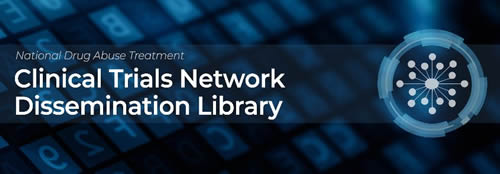The New CTN Dissemination Library Website Is Live! |
|

The CTN Dissemination Library has a new look! Thank you to all the folks who volunteered to test the site and offer feedback!
The new Library site has been redesigned to improve organization, useability (particularly on mobile devices), and accessibility for people who use assistive technology. All your favorite resources are there, along with some new features, including:
- Pages for each of the CTN Special Interest Groups (are you the chair of the Comorbidities SIG or the Practice Based Research Network? If so, we'd love to get a page up about your group too -- email us at ctnlib@uw.edu!)
- An event calendar that will be used to track CTN-related events. If you are in a SIG or a Node that is hosting an event (online or in-person), please email the information to us at ctnlib@uw.edu and we can add it to the calendar and help market it for you!
- The CTN What's New blog featured right on the home page. Our blog was previously separately hosted but now is integrated right into the Library site. Find the latest items added to the Library, CTN or NIDA news, Node and protocol updates, information about funding opportunities, and more!
Want to help us keep the site accurate? Please review your Node page and send us any updates or corrections!
Coming Soon!
In the next 1-2 months, we'll be moving the CTN Bulletin to the MailChimp platform. This will improve readability on mobile devices, as well as allow subscribers to manage their own settings (subscribe, unsubscribe, etc.).
We'll also be adding a subscriber option to the What's New blog so you can get new posts sent to you directly via email.
Finally, we're working on improvements to the actual Library catalog itself, so that it's easier to search and browse results right from your phone.
Watch for news on these two features coming soon!
Got comments about the new Library site? Stumbled across a broken link or something that isn't working right? We'd love to hear from you! Email us at ctnlib@uw.edu! |
CTN Trial Progress
 Randomizations for Active Studies as of the May 15 Trial Progress Report. Randomizations for Active Studies as of the May 15 Trial Progress Report.
CTN-0080 - Enrolled 140
CTN-0096 - Enrolled 5
CTN-0098 - Enrolled 135
CTN-0099 - Enrolled 1511
CTN-0099-A-1 - Enrolled 98
CTN-0100
Discontinuation - Enrolled 147
Retention - Enrolled 778
CTN-0101 - Enrolled 202
CTN-0107 - Enrolled 138
CTN-0108 - Enrolled 81
CTN-0109 - Enrolled 2
CTN-0110 - Enrolled 2
CTN-0116 - Enrolled 77
|
· · · · · · · · · · · · · · · · · · · · · · · · · · · · · · · · · · · · · · · ·
· · · · · · · · · · · · · · · · · · · · · · ·
Call for Volunteers for the Publications Committee!
 The Publications Committee (PC) is asking for volunteers to serve as protocol review team members to aid in reviewing papers, posters and abstracts from CTN studies, especially protocols CTN 0135 - 0143. The Publications Committee (PC) is asking for volunteers to serve as protocol review team members to aid in reviewing papers, posters and abstracts from CTN studies, especially protocols CTN 0135 - 0143.
These materials are reviewed by the PC before submission to journals or conferences. Reviewers prepare comments and suggestions about the material, usually in a short format. PC reviews are meant to clarify the material for the intended audience, indicate any possible errors or problems, and generally intended to improve or enhance the submission. In addition to assisting the PC, reviewers have early access to the results of CTN studies before presentation and publication.
Node leadership (PIs, LIs, node coordinators, etc.) should please provide the names of people in your nodes who you suggest and who are interested in volunteering to be PC reviewers on protocol teams. Also, some individuals, e.g. statisticians, may prefer to serve as ad hoc reviewers, not assigned to a specific protocol team but assigned as their expertise or experience is needed. Self-referrals are also welcome.
Remember, the PC needs reviewers from every node as well as with broad range of expertise and experience. Please email George Bigelow (bigelow@jhmi.edu), Susan Sonne (sonnesc@musc.edu), and Jack Blaine (jblaine@nida.nih.gov) with your protocol preferences or for further information.
Thank you for volunteering!
· · · · · · · · · · · · · · · · · · · · · · · · · · · · · · · · · · · · · · · ·
· · · · · · · · · · · · · · · · · · · · · · ·
NIDA Racial Equity Initiative: Notices of Funding Opportunities (NOFOs)
 These NOFOs are focused on research to advance equity for racial and/or ethnic minority populations in the United States. The NOFOs call for innovative, solution-oriented, community-engaged research from research teams with a commitment to broad dissemination of findings. Applications are expected to incorporate diverse perspectives. Please note that some NOFOs are open to all institutions, and some are limited to applications from Minority Serving Institutions (see Section III of the respective NOFOs for eligibility criteria). These NOFOs are focused on research to advance equity for racial and/or ethnic minority populations in the United States. The NOFOs call for innovative, solution-oriented, community-engaged research from research teams with a commitment to broad dissemination of findings. Applications are expected to incorporate diverse perspectives. Please note that some NOFOs are open to all institutions, and some are limited to applications from Minority Serving Institutions (see Section III of the respective NOFOs for eligibility criteria).
A recording of the TA webinar that was held on September 26, 2022, during which NIDA staff provided an overview of the NOFOs and responded to questions is now available. Please note that the RFA-DA-23-025: NIDA REI: Coordination Center to Support Racial Equity and Substance Use Disparities Research (U24 Clinical Trial Not Allowed) NOFO has expired.
The NOFOs and webinar information can be found on the NIDA Racial Equity Initiative Funding Priority website. The NOFOs are also listed in the NIH Guide.
Please reach out to the NIDA staff listed on the NOFOs with questions!
HIV and Substance Use. Multiple receipt dates. Next due date of November 14, 2023.
RFA-DA-23-062: NIDA REI: Reaching Equity at the Intersection of HIV and Substance Use: Novel Approaches to Address HIV Related Health Disparities in Underserved Racial/Ethnic Populations (R34 Clinical Trial Optional)
RFA-DA-23-061: NIDA REI: Reaching Equity at the Intersection of HIV and Substance Use: Novel Approaches to Address HIV Related Health Disparities in Underserved Racial/Ethnic Populations (R01 Clinical Trial Optional)
Community Engaged R01 Projects. Multiple receipt dates. Next due date of November 14, 2023.
RFA-DA-23-013: NIDA REI: Addressing Racial Equity in Substance Use and Addiction Outcomes Through Community-Engaged Research (R01 Clinical Trial Optional)
RFA-DA-23-032: NIDA REI: Addressing Racial Equity in Substance Use and Addiction Outcomes Through Community-Engaged Research at Minority Serving Institutions (R01 Clinical Trial Optional) *Limited eligibility, see Section III of NOFO
Racial Equity Visionary Award Program. Multiple receipt dates. Next due date of November 14, 2023.
RFA-DA-23-026: NIDA REI: Racial Equity Visionary Award Program for Research on Substance Use and Racial Equity (DP1 Clinical Trial Optional)
RFA-DA-23-031: NIDA REI: Racial Equity Visionary Award Program for Research at Minority Serving Institutions on Substance Use and Racial Equity (DP1 Clinical Trial Optional) *Limited eligibility, see Section III of NOFO
Neurocognitive Mechanisms. Multiple receipt dates. Next due date of November 14, 2023.
RFA-DA-23-028: NIDA REI: Research on Neurocognitive Mechanisms Underlying the Impact of Structural Racism on the Substance Use Trajectory (R61/R33 Clinical Trial Optional)
RFA-DA-23-029: NIDA REI: Research at Minority Serving Institutions on Neurocognitive Mechanisms Underlying the Impact of Structural Racism on the Substance Use Trajectory (R61/R33 Clinical Trial Optional) *Limited eligibility, see Section III of NOFO
· · · · · · · · · · · · · · · · · · · · · · · · · · · · · · · · · · · · · · · ·
· · · · · · · · · · · · · · · · · · · · · · ·
News from the Big South/West Node
 The PIs of the CTN Big South/West Node attended this year’s Texas Substance Use Symposium (TxSUS), March 27-28, 2023 for a panel titled,"Screening, Interventions and Collaborative Care Models for Increasing SUD Treatment in Primary Care." The PIs of the CTN Big South/West Node attended this year’s Texas Substance Use Symposium (TxSUS), March 27-28, 2023 for a panel titled,"Screening, Interventions and Collaborative Care Models for Increasing SUD Treatment in Primary Care."
The panel session provided an overview and rationale of establishing primary care models for screening and interventions for SUD. The main objectives were to learn about (1) approaches for incorporating alcohol and drug screening into primary care practices, integrated with the electronic health record (EHR); (2) lessons learned from SUD collaborative care trials in primary care settings; and (3) establishing collaborative care models in Federally Qualified Health Centers (FQHC), including pharmacists, in SUD/OUD treatment and management.
Find more information and copies of all the slides from this session in the CTN Dissemination Library!
New from the ATTC
 Novel approaches to engaging emerging adults with risky alcohol use and enhancing the efficacy of alcohol brief motivational interventions - by James G. Murphy, PhD, University of Memphis, ATTC Messenger, May 2023. Novel approaches to engaging emerging adults with risky alcohol use and enhancing the efficacy of alcohol brief motivational interventions - by James G. Murphy, PhD, University of Memphis, ATTC Messenger, May 2023.
Addiction Science Made Easy - Using Performance Data and Quality Improvement to Enhance Project ECHO Interventions (based on a recent paper by Murray OB et al. about CTN-0103) - by Meg Brunner, MLIS, ATTC Messenger, May 2023.
NIATx in New Places: Building Capacity for Effective School-Based Suicide Prevention - by Maureen Fitzgerald and Sarah McMinn, ATTC|NIATx Service Improvement Blog, May 2023.
|
News from Greater Southern California Node
 Care coordination between rural primary care and telemedicine to expand medication treatment for opioid use disorder: Results from a single-arm, multisite feasibility study | May 12th TM SIG 8:30am PST/11:30am EST Care coordination between rural primary care and telemedicine to expand medication treatment for opioid use disorder: Results from a single-arm, multisite feasibility study | May 12th TM SIG 8:30am PST/11:30am EST
The use of telemedicine (TM) has accelerated in recent years, yet research on the implementation and effectiveness of TM-delivered medication treatment for opioid use disorder (MOUD) has been limited. In this presentation, Yih-Ing Hser, Ph.D., one of two Principal Investigators of the Greater Southern California Node of the National Institute on Drug Abuse Clinical Trials Network, discussed the feasibility of implementing a care coordination model involving MOUD delivered via an external TM provider to expand access to MOUD for patients in rural settings.
[Note: This event has passed but you can watch for future Telemedicine SIG events on the CTN Library's What's New blog!
New publications:
|
· · · · · · · · · · · · · · · · · · · · · · · · · · · · · · · · · · · · · · · ·
· · · · · · · · · · · · · · · · · · · · · · ·
Upcoming Webinars
 May 19, 2023 (11am ET)
May 19, 2023 (11am ET)
Getting Evidence-Based Treatments to Youth and Families Who are Involved in the Juvenile Legal System (CTN Youth SIG)
Dr. Ashli J. Sheidow’s services research examines methods and tools for getting substance use interventions to youth with juvenile legal system involvement. She will present lessons learned, with a focus on a task-shifting study with juvenile probation officers delivering contingency management treatment to youth and their parents/caregivers.
The presentation will include insights into training and support for different providers, as well as lessons learned about services research design and methods.
Find out more and connect to the Youth SIG Webinar here.
· · · · · · · · · · · · · · · · · · · · · · · · · · · · · · · · · · · · · · · ·
· · · · · · · · · · · · · · · · · · · · · · ·
 New in the CTN Dissemination Library New in the CTN Dissemination Library
Augmenting Project ECHO for Opioid Use Disorder with Data-Informed Quality Improvement. Murray OB, Doyle M, McLeman BM, et al. Addiction Science & Clinical Practice 2023;18:24. CTN-0103
Who Responds to a Multi-Component Treatment for Cannabis Use Disorder? Using Multivariable and Machine Learning Models to Classify Treatment Responders and Non-Responders.
Tomko RL, Wolf BJ, McClure EA, et al. Addiction 2023 (in press). CTN-0053
Care Coordination Between Rural Primary Care and Telemedicine to Expand Medication Treatment for Opioid Use Disorder: Results from a Single-Arm, Multisite Feasibility Study.
Hser Y, Mooney LJ, Baldwin L, et al. Journal of Rural Health 2023 (in press). CTN-0102
Implementing Programs to Initiate Buprenorphine for Opioid Use Disorder Treatment in High-Need, Low-Resource Emergency Departments: A Nonrandomized Controlled Trial. McCormack RP, Rotrosen J, Gauthier P, et al. Annals of Emergency Medicine 2023 (in press). Primary outcomes for CTN-0079
Telemedicine along the cascade of care for substance use disorders during the COVID-19 pandemic in the United States. Lin C, et al. Drug and Alcohol Dependence 2023;242:109711. CTN Telemedicine SIG
Exploring the Performance of During-Treatment Substance Use Outcome Measures in Predicting Longer-Term Psychosocial Functioning and Post-Treatment Abstinence. Brandt L, et al. Drug and Alcohol Dependence 2023 (in press). CTN-0044
Perspectives of Clinicians and Staff at Community-Based Opioid Use Disorder Treatment Settings on Linkages With Emergency Department-Initiated Buprenorphine Programs. Sue KL, et al. JAMA Network Open 2023; 6(5): e2132718. CTN-0069.
· · · · · · · · · · · · · · · · · · · · · · · · · · · · · · · · · · · · · · · ·
· · · · · · · · · · · · · · · · · · · · · · ·
News from NIDA
 Young men at highest risk of schizophrenia linked with cannabis use disorder. NIDA News Release, May 4, 2023. The study, conducted by researchers in Denmark, estimated that as many as 30% of cases of schizophrenia among men aged 21-30 might have been prevented by averting cannabis use disorder. Young men at highest risk of schizophrenia linked with cannabis use disorder. NIDA News Release, May 4, 2023. The study, conducted by researchers in Denmark, estimated that as many as 30% of cases of schizophrenia among men aged 21-30 might have been prevented by averting cannabis use disorder.
Social determinants of health can't be extricated from addiction science. From Nora [Volkow's] Blog, April 27, 2023. "In clinical trials of new medications to treat addiction, it is crucial that we take into account social determinants that influence participants’ access to quality healthcare."
|
Upcoming Events
2023 American Psychiatric Association meeting
May 20-24, 2023 | San Francisco, CA
& virtual
2023 NIDA International Forum (free)
June 8-9, 2023 | Virtual
2023 College on Problems of Drug Dependence (CPDD) Scientific Meeting
June 17-21, 2023
Find more upcoming events at the NIDA website.
|
   
|